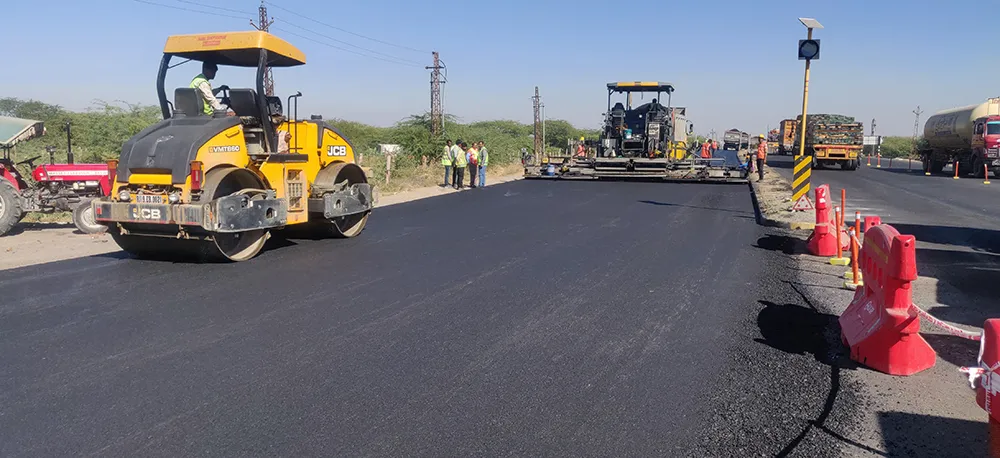The State of Rio de Janeiro, Brazil administers a wide network of highways and is faced with a significant maintenance management challenge of how to best make improvements having a perdurable impact. The maintenance management for the project needed to be done at a reasonable cost and needed to be able to withstand a heavy traffic flow. To meet such challenges, the Rio de Janeiro selected project RJ122 to undertake a new type of maintenance strategy. The RJ122 highway is a unique paving project in the rece
June 24, 2013
Read time: 3 mins
The State of Rio de Janeiro, Brazil administers a wide network of highways and is faced with a significant maintenance management challenge of how to best make improvements having a perdurable impact. The maintenance management for the project needed to be done at a reasonable cost and needed to be able to withstand a heavy traffic flow. To meet such challenges, the Rio de Janeiro selected project RJ122 to undertake a new type of maintenance strategy.
The RJ122 highway is a unique paving project in the recent history of the Government of the State of Rio de Janeiro. The RJ122 highway was paved in the 1970s and has since become extensively cracked, not only making the ride uncomfortable for the high volume of vehicles, but also unsafe – most areas even lacked a shoulder. The Government of the State of Rio de Janeiro decided to use an environmentally sustainable technology in the rehabilitation of the pavement, one that was completely new to Brazil.
Typically the 35.6km project would need to be completely reconstructed; however, they chose to deploy a modified, rubberised bitumen pavement structure, a substance composed of recycled tires. By employing this rubberised bitumen within two very unique paving hot mixes, it was possible to construct a much more economical pavement. Rehabilitation began in 2009 and was completed in 2011.
Rio de Janeiro earned the 2012 IRF GRAA for Maintenance Management based on their proactive approach to utilising new technology, as well as the maintenance and associated project management addressing the rehabilitation of a severely distressed roadway.
Before undertaking this laudable task, DER-RJ chief operating officer/engineer Angelo Pinto, with the support of governor Sergio Cabral, did the due diligence of thoroughly investigating the technology in order to mitigate any potential risk resulting from incorrect use and application.
They received assistance from many noted experts in the field of rubberized asphalt, including Dr Jorge Sousa of Consulpav International, Mr George Way of the rubberised Asphalt Foundation, professor Kamil Kaloush of Arizona State University (ASU) and Mr Mark Belshe of the Rubber Pavements Association (RPA).
Additionally, training was provided on using the new rubberised asphalt blending equipment correctly, efficiently and safely. Modern standard tests of the rubberised asphalt binder and the mixtures were completed with practical in-house laboratory evaluations throughout the project’s duration.
The RJ122 highway rehabilitation project demonstrated outstanding final pavement qualities, including improved skid resistance, better ride quality and reduced environmental impacts – all by recycling approximately 200,000 tires. The project also won public support in Rio de Janeiro based on these qualities, as well as the reduced roadway noise – a benefit of rubber asphalt.
Post-construction assessment included the use of falling weight deflectometer data and an in situ heavy vehicle simulator to estimate future performance.
The RJ122 Highway Rehabilitation Project won the 2012 Global Road Achievement Award for Maintenance Management. Visit the3918 IRF Washington website for additional GRAA information, including how to enter a project into the 2013 competition.
The RJ122 highway is a unique paving project in the recent history of the Government of the State of Rio de Janeiro. The RJ122 highway was paved in the 1970s and has since become extensively cracked, not only making the ride uncomfortable for the high volume of vehicles, but also unsafe – most areas even lacked a shoulder. The Government of the State of Rio de Janeiro decided to use an environmentally sustainable technology in the rehabilitation of the pavement, one that was completely new to Brazil.
Typically the 35.6km project would need to be completely reconstructed; however, they chose to deploy a modified, rubberised bitumen pavement structure, a substance composed of recycled tires. By employing this rubberised bitumen within two very unique paving hot mixes, it was possible to construct a much more economical pavement. Rehabilitation began in 2009 and was completed in 2011.
Rio de Janeiro earned the 2012 IRF GRAA for Maintenance Management based on their proactive approach to utilising new technology, as well as the maintenance and associated project management addressing the rehabilitation of a severely distressed roadway.
Before undertaking this laudable task, DER-RJ chief operating officer/engineer Angelo Pinto, with the support of governor Sergio Cabral, did the due diligence of thoroughly investigating the technology in order to mitigate any potential risk resulting from incorrect use and application.
They received assistance from many noted experts in the field of rubberized asphalt, including Dr Jorge Sousa of Consulpav International, Mr George Way of the rubberised Asphalt Foundation, professor Kamil Kaloush of Arizona State University (ASU) and Mr Mark Belshe of the Rubber Pavements Association (RPA).
Additionally, training was provided on using the new rubberised asphalt blending equipment correctly, efficiently and safely. Modern standard tests of the rubberised asphalt binder and the mixtures were completed with practical in-house laboratory evaluations throughout the project’s duration.
The RJ122 highway rehabilitation project demonstrated outstanding final pavement qualities, including improved skid resistance, better ride quality and reduced environmental impacts – all by recycling approximately 200,000 tires. The project also won public support in Rio de Janeiro based on these qualities, as well as the reduced roadway noise – a benefit of rubber asphalt.
Post-construction assessment included the use of falling weight deflectometer data and an in situ heavy vehicle simulator to estimate future performance.
The RJ122 Highway Rehabilitation Project won the 2012 Global Road Achievement Award for Maintenance Management. Visit the








